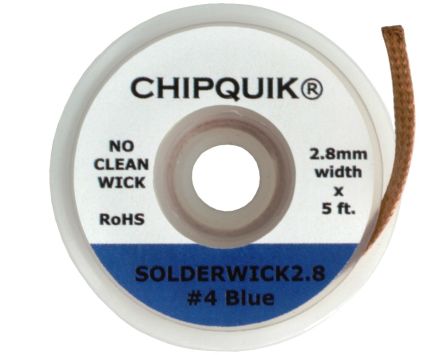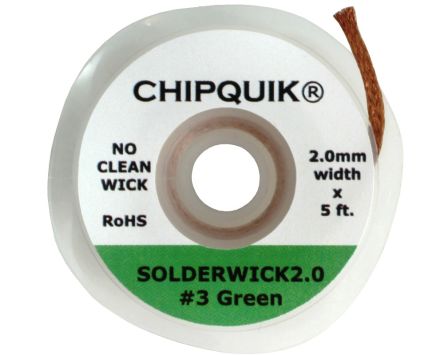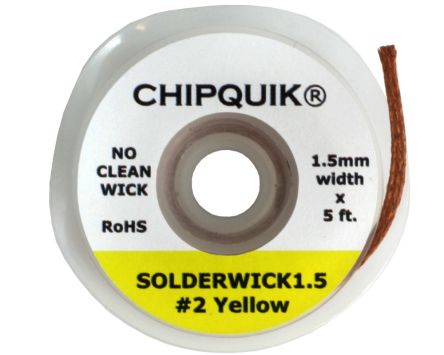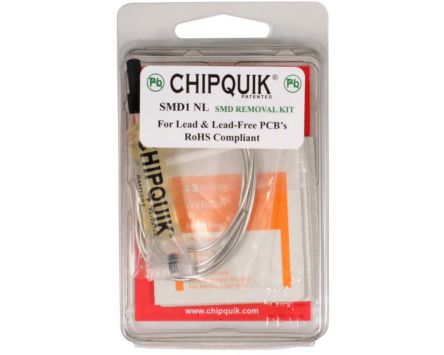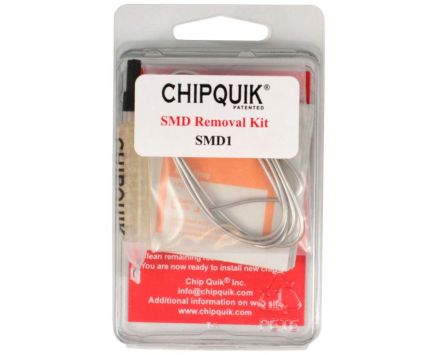- Automation & Control Gear
- Cables & Wires
- Enclosures & Server Racks
- Fuses & Circuit Breakers
- HVAC, Fans & Thermal Management
- Lighting
- Relays & Signal Conditioning
- Switches
- Batteries & Chargers
- Connectors
- Displays & Optoelectronics
- ESD Control, Cleanroom & PCB Prototyping
- Passive Components
- Power Supplies & Transformers
- Raspberry Pi, Arduino, ROCK, STEM Education & Development Tools
- Semiconductors
Chipquik Solder Wicks
Solder wicks are used as a solder remover when re-working the solder or removing components that have been soldered. Solder wicks work by applying the soldering iron to the wick while it sits on the soldered joint or area to heat them both up to the melting point to activate the flux. When this happens, the solder is drawn up the wick, removing the solder.
Key Features
- Solder wicks significantly reduce re-work or repair time by absorbing solder residue
- Minimising the risk of the damage to the component or delicate electronic circuit boards that are fragile
- Quickly and efficiently remove excess solder material while completing hand soldering rework
- Removing components that have been soldered to connect to other components, solder bridge removal and general tidying up of solder areas or joins.
- Supplied on a spool or pre-cut strands.
How do you use solder wick?
Gently place the wick or braid on top of the solder area or join that needs to be removed, place the heated soldering iron tip onto the wick for the temperature to reach the melting point. Once this has reached the correct melting point, the solder will be absorbed by the copper wick.
After reaching the desired finish for the solder removal, remove the wick and cut off the section that has been used with a pair of sharp nippers to ensure a clean finish.
Applications
Solder wicks can be used across a wide range of desoldering applications that help with the removal of unwanted solder or re-working old solder. The solder wicks are manufactured with different features such as lead-free, anti-static and no-clean for an easier and more efficient desolder process. In addition to this, the absorbability of the copper wick depends on the type of solder used when removing it.
Desoldering is a process that can be used across many applications where soldering is used, but it is most often used in removing solder from items such as printed circuit boards (PCBs) and other electronics, re-working and removing old solder that no longer has an effective join or taking apart electronic components that have been soldered together.
